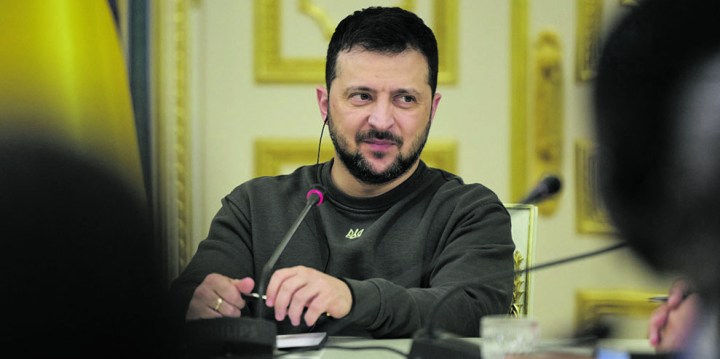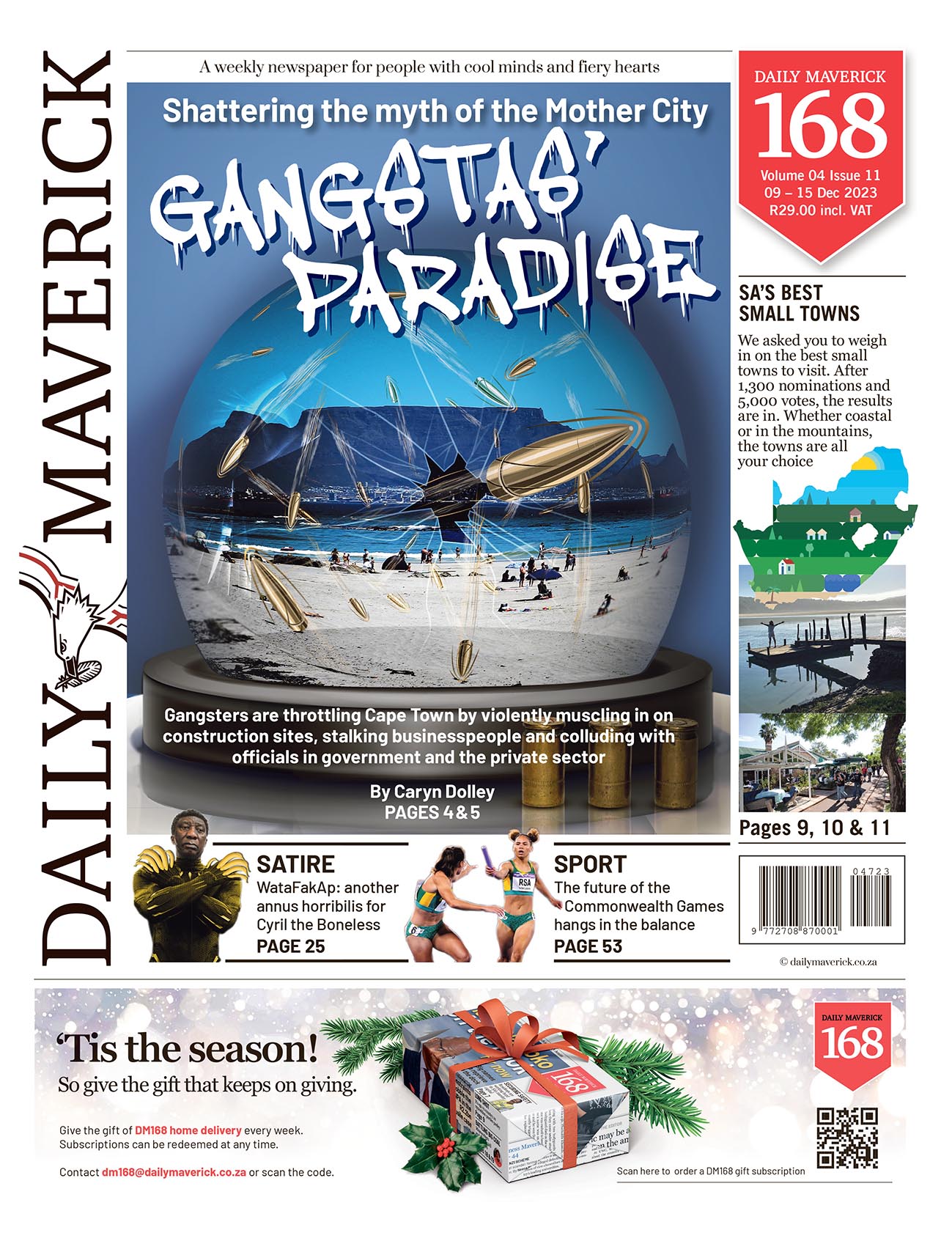WAR IN EUROPE
How Ukraine grain dodges the Russians — ‘tidying things up in the Black Sea’

The embattled country’s new food export corridor has already shipped millions of tonnes.
Stalin starved more than three million Ukrainians to death in 1932 and 1933 by stealing their grain to feed Russians who were also starving because of the failure of his collectivisation of farms.
Ukraine calls that man-made famine the Holodomor and says it was genocide.
Recently, at a summit of the Grain from Ukraine initiative in Kyiv, Ukraine’s President Volodymyr Zelensky said: “Putin is proud to follow the greatest killers of the 20th century. If he could arrange another Holodomor for Ukraine, he would do it.”
He was referring not only to Russian President Vladimir Putin’s general war on Ukraine, but also to Putin’s efforts to “weaponise hunger” by blockading and attacking Ukraine’s Black Sea ports to try to prevent it from exporting its grain and other food.
“The stability of the food market is crucial for dozens of countries and hundreds of millions of people across the vast expanse from west Africa to east Asia,” Zelensky said.
Read more in Daily Maverick: War in Ukraine
In July, Putin pulled Russia out of the Black Sea Grain Initiative (BSGI), under which it had lifted its blockade of Ukraine’s Black Sea ports for almost a year to allow food exports. It then resumed attacks on Ukraine’s ports, grain infrastructure and civilian ships.
Despite this, Ukraine has managed to export seven million tonnes of grain through the Black Sea since 8 August, under its own parallel grain corridor, Zelensky and other officials told visiting African journalists.
This was done by “tidying things up in the Black Sea”, as Zelensky put it.
Russia hasn’t stopped attacking the area, but they register casualties, vessels, aircraft.
Prime Minister Denys Shmyhal explained that Ukraine’s military, using arms provided by international partners, had pushed back the Russian fleet to Novorossiysk on the eastern shore of the Black Sea. Westward, it was protecting the coast all the way to Romania.
“Russia hasn’t stopped attacking the area, but they register casualties, vessels, aircraft,” Zelensky said.
Ukraine was beginning to return to previous volumes of food exports, he claimed.
He recalled that the blockade Russia had imposed in the Black Sea at the start of the war in February 2022 had caused global grain prices to rise by up to 300%, as Ukraine had been one of the major world suppliers.
African countries were hit hard and some appealed to Russia and Ukraine to resolve the problem. Turkey and the UN persuaded Russia to lift its blockade for food ships.

Manager of the Odesa seaports authority Denys Karpov briefs African journalists about the parallel Ukrainian grain corridor. Photos: Ukraine government
Under the BSGI, from August 2022 to July 2023 Ukraine exported more than 33 million tonnes of grain and other food, including 3.3 million tonnes to 10 African countries.
Other emergency measures, such as the EU’s Solidarity Lanes, which facilitated the export of agricultural products by rail, road and river through Europe, also helped.
In July, Putin pulled out of the BSGI because he said Western nations refused to lift their sanctions on Russia, which he said were impairing its ability to export its own food (food is exempt from sanctions, but Putin said blocks on shipping were indirectly affecting exports).
Zelensky told the African journalists that Putin’s real motive for pulling out of the BSGI was that it was working too well and was reducing sales of Russia’s own grain – which was of “inferior” quality.
Apart from shooting down Russian aircraft and sinking ships, Ukraine also began evading attacks by following different sea routes.
Since then, 200 outbound and 226 inbound vessels had sailed the corridor established by the Ukrainian Navy, the Ukraine port authority told Daily Maverick.
The manager of Odesa’s port, Denys Karpov, said Russia had attacked 21 times since ditching the BSGI, mainly targeting Odesa, Pivdennyi and Chernomorsk and the Danube River ports of Reni and Izmail, hitting grain silos and other infrastructure.
In the Black Sea ports, 30% to 40% of grain exporting infrastructure had been damaged. “They destroyed about 300,000 tonnes of grain that should have been transported to the countries of Africa…
“And [importantly] there was damage [to] seven foreign civilian vessels, and more than 22 civilians were injured and three died,” said Karpov.
Apart from shooting down Russian aircraft and sinking ships, Ukraine also began evading attacks by following different sea routes, Zelensky explained.
Cargo ships hug the Ukrainian coast then sail through the territorial waters of Romania and Bulgaria, both Nato members. The grain ships then reach the Bosphorus and sail into the Mediterranean.
Ukraine is also exporting grain on smaller ships through Reni and Izmail via the Sulina canal to Romania.
We managed and we did it to show that Ukraine is interested in guaranteeing food security.
Nato secretary-general Jens Stoltenberg has cited Ukraine’s grain corridor as a notable example of its military successes.
After a Ukraine-Nato meeting in Brussels on 29 November, Stoltenberg said not all Ukraine’s military achievements could be measured in square kilometres of territory recaptured from the Russian invaders.
Mykola Gorbachov, president of the Ukrainian Grain Association, told the journalists the higher costs of producing grain under war conditions were making farming unprofitable. “We have to stop this war or we can’t continue to be sustainable producers of grain for the world.”
More optimistically, Zelensky said: “We managed and we did it to show that Ukraine is interested in guaranteeing food security. This is not just for the sake of the rest of the world but for the sake of Ukraine too. We want to sell our grain, after all.”
In addition to commercial sales, the Grain from Ukraine initiative was delivering free grain to needy countries, including some in Africa. The country had donated grain worth about $160-million so far.
“You may tell Africans that we have also increased railway capacity several-fold, so I think we will be able to ship enough grain to Africa,” Zelensky said.
“It is important for us to remain a guarantor of food security.” DM
This story first appeared in our weekly Daily Maverick 168 newspaper, which is available countrywide for R29.





















Comments - Please login in order to comment.